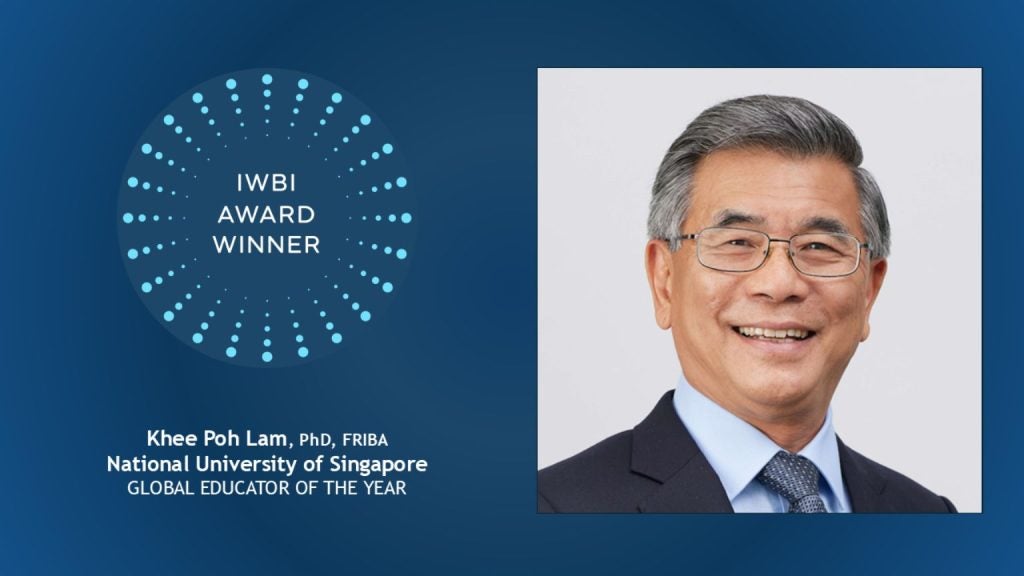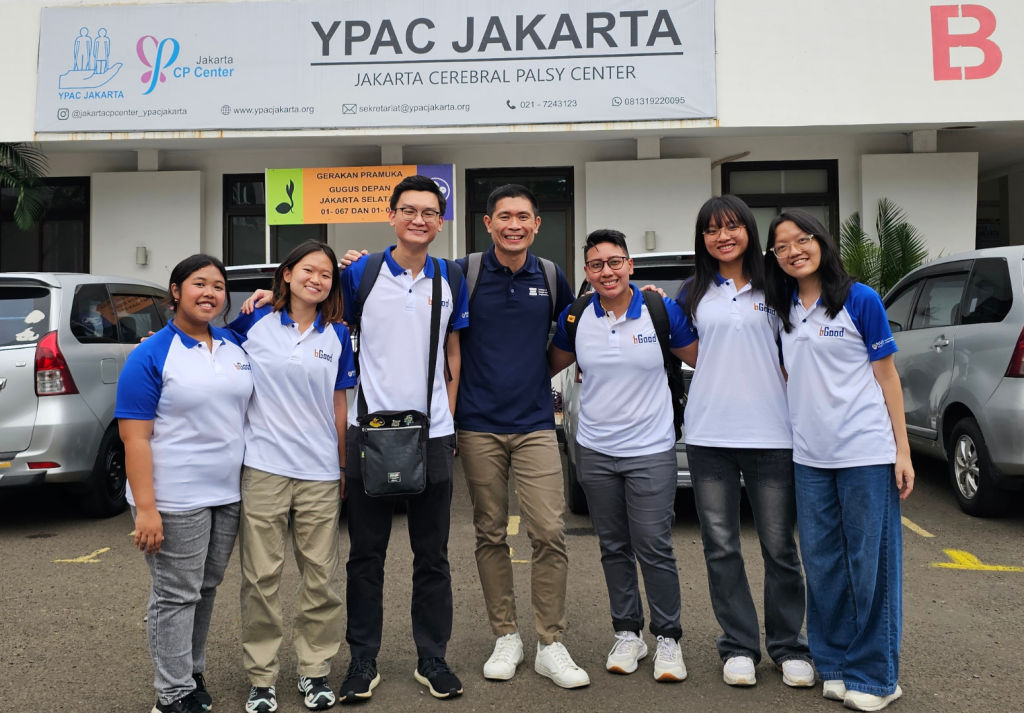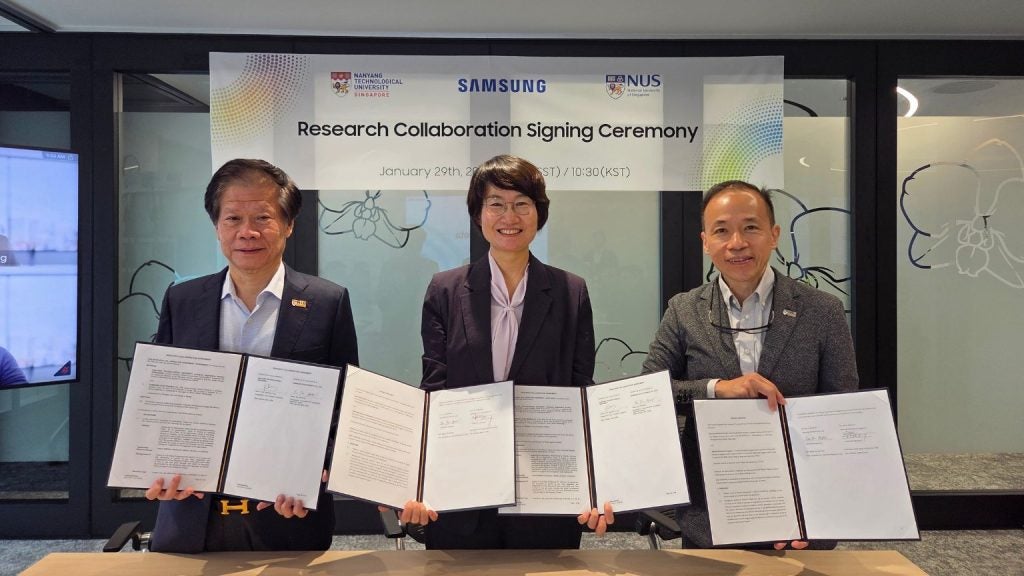
With its strong industry partnerships, world-leading academic expertise and unique interdisciplinary approach to innovation, the SHINE microelectronics research centre at NUS has the potential to be a "technology game-changer".
That was the message from the Director of the Singapore Hybrid-Integrated Next-Generation μ-Electronics (SHINE) research centre, Prof Aaron Thean, speaking at the opening of a technical workshop marking the centre's one-year milestone.
Bringing together global industry experts and academics from the advanced microelectronics sector, the workshop held from June 30-July 1 saw the formal launch of key partnerships for the centre and the first time that industry partners and members of the centre have been able to meet and exchange ideas in person after the COVID-19 pandemic.
Guest of Honour for the inaugural event was Brigadier-General Ng Chad-Son, Deputy Secretary of Ministry of Defence (Technology).
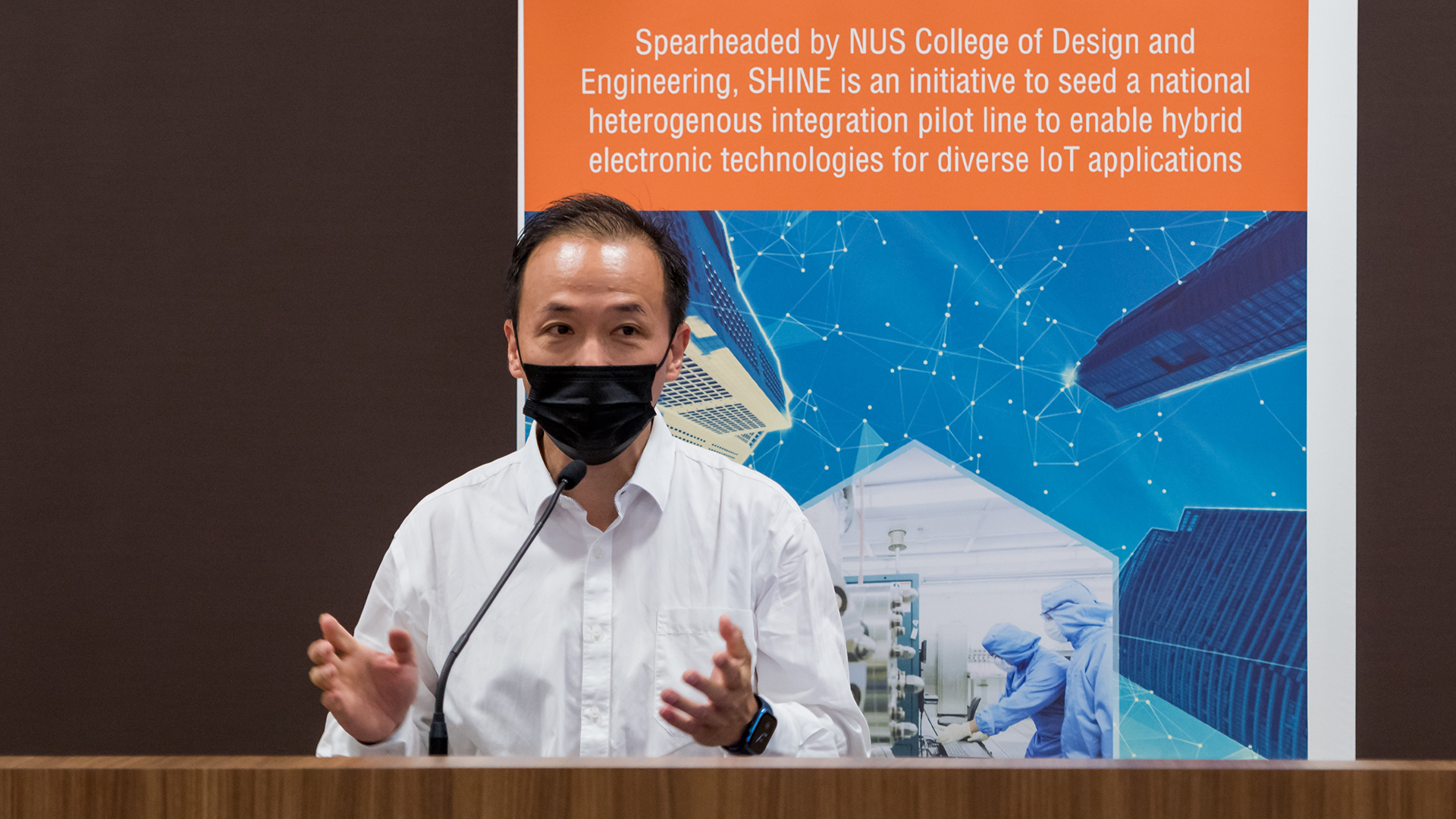
Spearheaded by the College of Design and Engineering, NUS (CDE), the SHINE centre opened in 2021 with the aim of bringing together academic and industry researchers to investigate and develop constructive hybrid integration technologies that enable next-generation electronics.
In particular, it aims to research and develop innovations that translate to new Internet-of-Things (IoT) applications and associated technologies such as wearables, smart vehicles, and space-based technologies.
Opening the inaugural workshop, Professor Thean, Director of SHINE as well as Dean of the CDE, told assembled guests that a key differentiator for the centre was its "interdisciplinary, co-innovation approach, that links material science, process innovation, and system design early in the research process."
"We are really fortunate to already have strong support from our partners to kick off the centre, and today we celebrate that," he said.
Prof Thean added that SHINE's first workshop was taking place at a critical juncture for the global microelectronics ecosystem.

"With the consolidation of semiconductor chip foundries in the face of growing chip demand that continues to diversify in terms of applications, the electronics industry has started to look into system-level integrations," he said. "This is driven by the diverse functional needs of increasingly sophisticated IoT (Internet of Things) communications and sensor systems."
Against this background, he said the system integration and compact form factor offered by the SHINE centre, together with strong industry partnerships, would help create "a technology game-changer".
Smart Nation
In his address to the opening of the workshop, Brigadier-General Ng Chad-Son recalled the "breathtaking improvements" seen in the speed and power of microelectronics technology, and the relentless pace of change over the past two decades.
The COVID-19 pandemic had accelerated the global digital transformation, he said, with semiconductors and related industries central to the ongoing and increasingly rapid technological revolution.
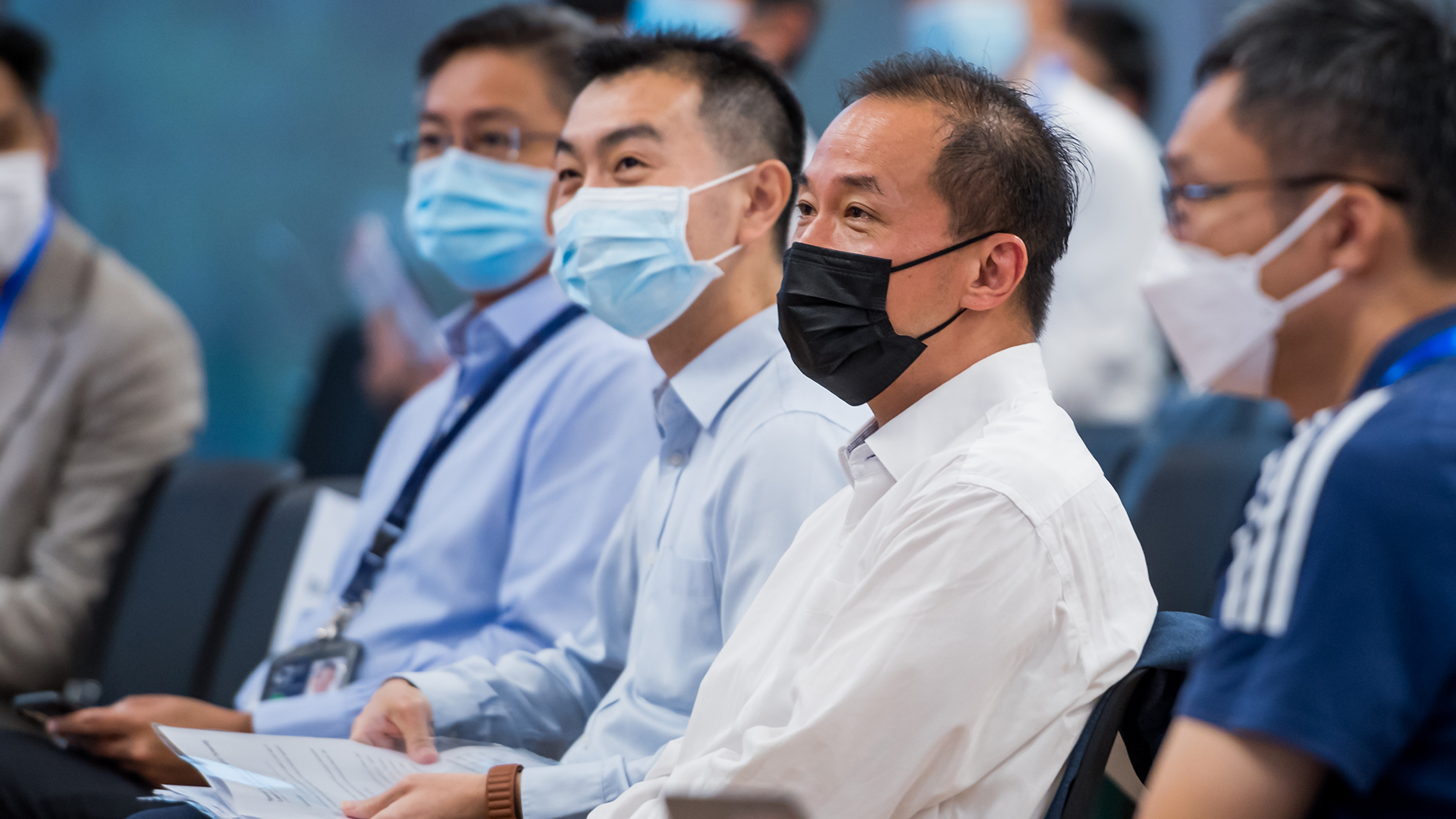
"As Singapore pursues its vision of Smart Nation, we have to continue to harness such technological advancements to effect transformation in healthcare, transport, urban living, government services, and business."
Pointing to the fast-emerging world of flexible electronics, BG Ng said this technology offered exciting potential to transform the way we make and use consumer electronics.
"Imagine a foldable smartphone screen that can remain compact for quickly checking a text message, but unfolded to watch a movie; or, electronic wearables that can conform to the human body," he said.
The setting up of the SHINE centre, he added, "could not have been more timely".
Talent pool
Speaking by video link at the event, Dr Suresh Venkatesan, Chairman and CEO of Toronto-based POET Technologies, one of SHINE's key industry partners, said he was "excited to be part of defining what the SHINE centre is going to be."
He added: "As you might know, in microelectronics, hybrid integration is becoming critical - the path is augmenting the capabilities and performance of silicon with novel materials. In that vein, POET has since 2018 between driving the path for integration with the world of optics, and with the SHINE centre we're able to deliver not only a co-packaged electronics-optics thrust, but there are other materials… that are part of the activity at the SHINE centre that we're excited to part of."
Dr Venkatesan said another strong motivation for POET to collaborate with SHINE, besides future product development and prototyping is to engage with the high-quality technological talent pool both at the centre and in Singapore generally.
"To bring new technologies to market, we need critical talent," he said. "We're happy to be there at NUS where talent is born, and we're happy to participate with you in growing this ecosystem in Singapore."
SHINE is jointly supported by the Singapore National Research Foundation, Future Systems and Technology Directorate of the Singapore Ministry of Defence, NUS, Nanyang Technological University, DSO National Laboratories and A*STAR Institute of Microelectronics (IME).
Industry partners connected to the centre include Cadence, Continental, SOITEC, Applied Materials, Advanced Micro Foundry and POET Technologies.



